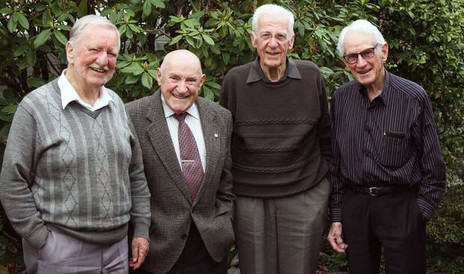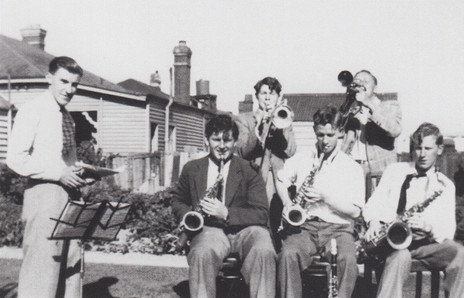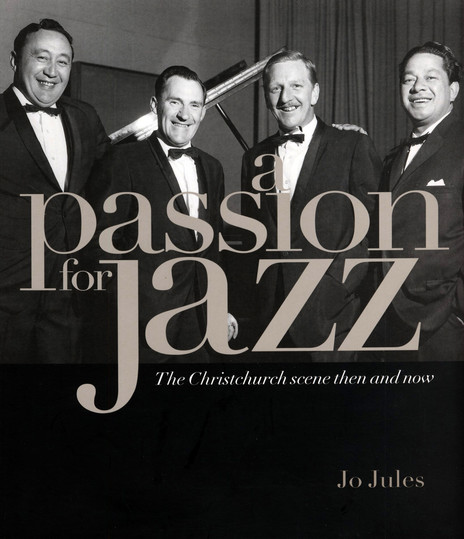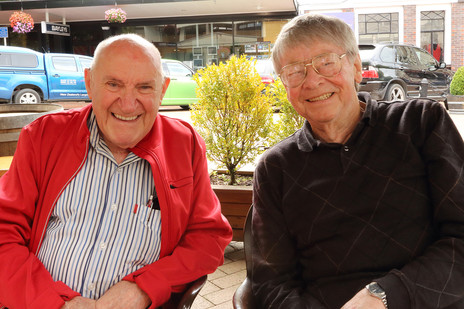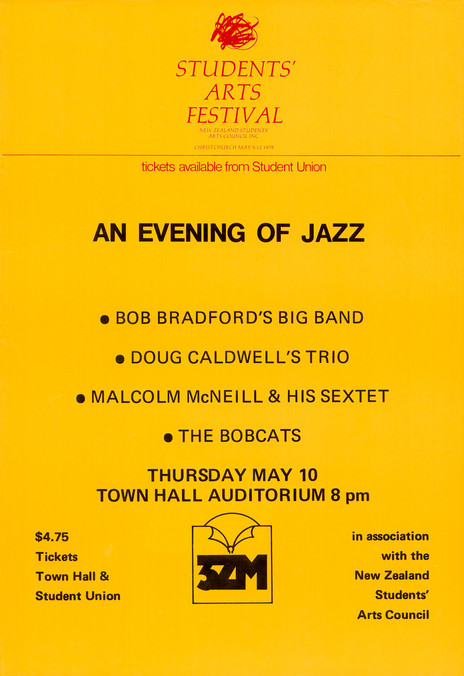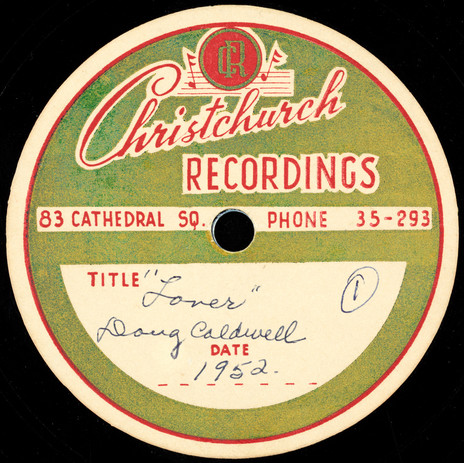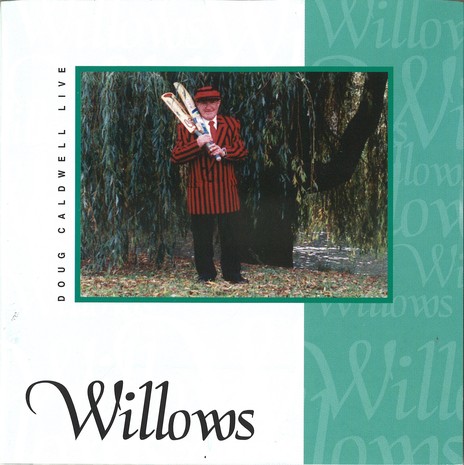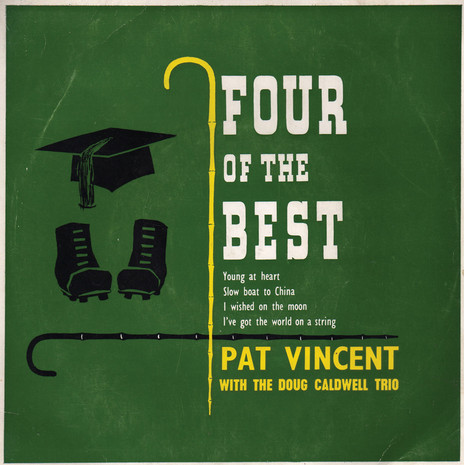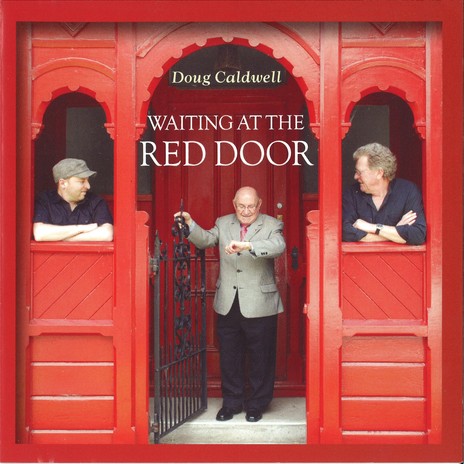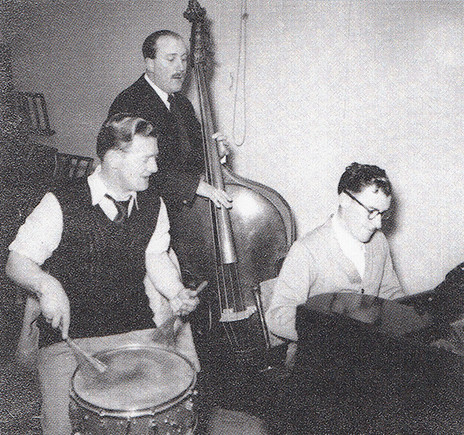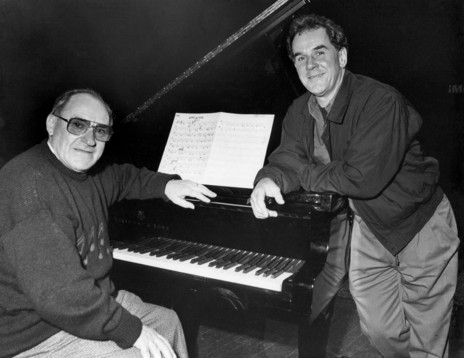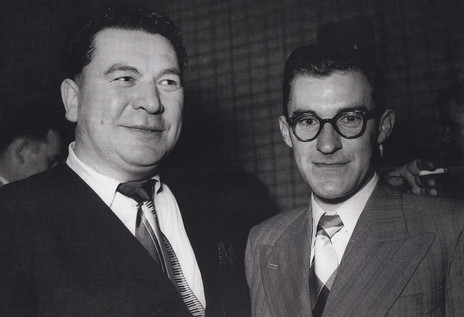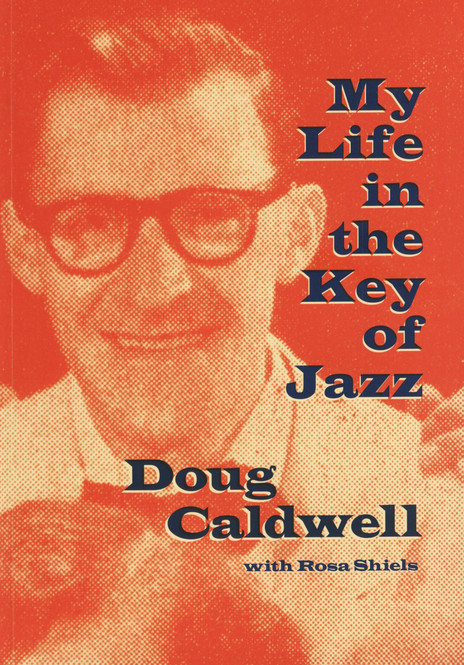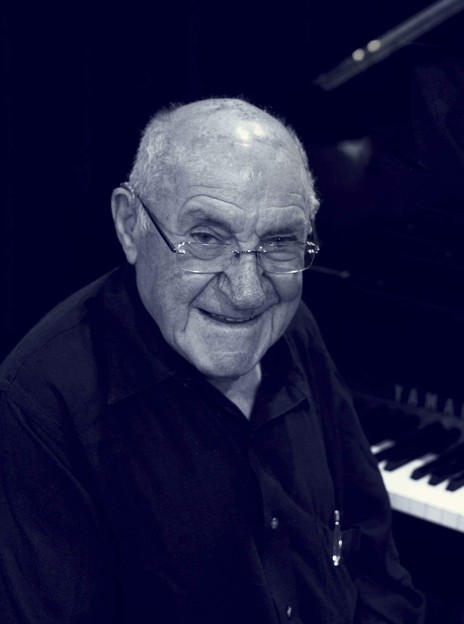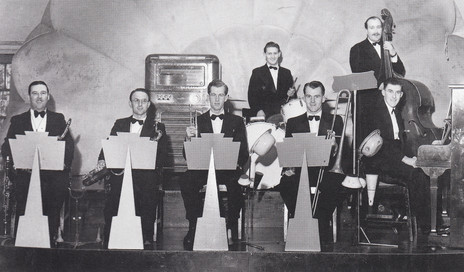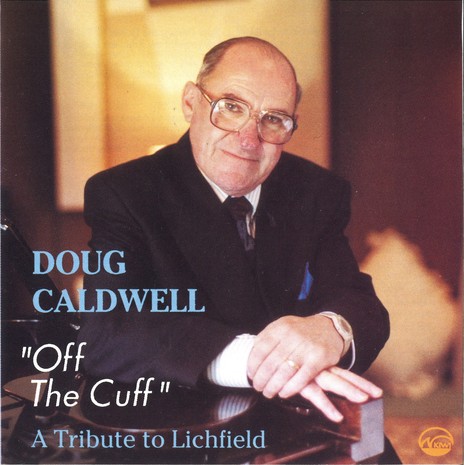In his memoir, My Life in the Key of Jazz (CPIT, 2010), Caldwell says, “I can honestly say that music was my first memory and will probably be my last.”
Later, he’d work out piano riffs by watching the keys on the family pianola go up and down to his father’s Fats Waller or Jelly Roll Morton piano rolls.
His father lullabied him to sleep as a baby on the Paolo Soprani accordion and, as a young chap, little Dougie would stand on a stool beside his sister while she practised piano and complain whenever she played a bum note.
Later, he worked out piano riffs by watching the keys on the family pianola go up and down to his father’s Fats Waller or Jelly Roll Morton piano rolls. At 11 he began his own piano lessons and to this day still hears the echoes of his teacher’s voice saying, “Sing with your fingers, Dougie.”
Caldwell’s secondary school life ended when he was 14 with him fleeing on his bike from a caning for playing popular tunes on the sacrosanct St Bede’s College chapel organ.
But school wasn’t where he wanted to be, anyway. He soon found a day job and by 17, in the optimistic post-war years, when dance bands and dance halls were the big thing in entertainment in every city and town, he scored his first professional job, playing piano for a “do” in a suburban lodge hall.
It was snowing by the time he finished and he had to dig out his bike from a snowdrift and push it seven or so kilometres home. Someone gave him a lifesaving swig of Scotch along the way and he arrived, tipsy and chilled to the bone, at dawn. For his troubles he copped a bout of pleurisy and pneumonia that settled on top of his already asthmatic lungs.
Someone else might have given up at that point, but Caldwell had been bitten early and nothing was going to halt his pursuit of music. From 1948 onwards opportunities snowballed, as it were, into what would become his lifetime career. “Music attracts all manner of people – good, bad, rich, poor, straitlaced and eccentric,” he says, “and I’ve seen the lot of them from my privileged perch on the bandstand.”
A quick snapshot of his work through the years includes his own band, the Staretta Boys; the Terry Minson Band and several years with the influential Brian Marston Concert Orchestra; the Les Brown Quartet; pianist and co-organiser of Christchurch’s first sell-out jazz concert in 1951; studying arranging and composition at Michigan State University, USA; National Radio broadcasts with a salon orchestra and his Latin band; arranging and musically directing; band leader at the dine-and-dance Malando Restaurant, Christchurch, and other salubrious venues; musical direction of a royal concert in Dunedin; concert tours with countless local and international singers; various jazz and arts festivals around the country; pianist with the Henry Mancini Band for the Christchurch Symphony Orchestra, and music teaching at Christchurch Boys’ High School and Christ’s College.
In 1968 lung problems came back to bite him and he succumbed to tuberculosis, spending several months with other sufferers in the Cashmere Sanatorium on the Port Hills.
One highlight among many was performing at the Sahara Hotel in Las Vegas in 1980. While visiting Pat Thompson, an expat New Zealand musician, Caldwell landed a gig in the band comprising top LA professionals for the annual 24-hour Jerry Lewis Telethon. Singers they backed included Tony Bennett, Sammy Davis Jnr, Paul Anka, and Helen Reddy.
Of that experience he wrote: “How they got around me having no green card was to give me a chit for the work, as if I’d won big on the blackjack table, so that I could go up to the cage and cash it in – very nifty. And it was decent payout, too!”
Caldwell has always taught talented students and in 1991, when musician and musicologist Neill Pickard founded the jazz course at Christchurch’s technical college (now the Ara Institute of Canterbury), he was invited to become a tutor. He worked there until 2005, often performing demonstration concerts with other tutors and international guests in the school’s auditorium, named the Doug Caldwell Concert Room in his honour. In 2006 he was awarded an MNZM for services to jazz in the Queen’s Birthday Honours.
His musical influences are wide-ranging. “When I was getting into music I liked the guys who were coming up then – Johnny Guarnieri [jazz, stride piano] – the kids wouldn’t know him now; Clark Terry [swing, bebop trumpet], and of course Teddy Wilson [jazz, swing piano]. All those guys from that era – wonderful players.
“In New Zealand, Brian Marston was a great help to me. Quiet sort of guy, a trombone player and a very good arranger. I played in his band in the Winter Garden for a long time and the Mayfair Lounge.
“In big bands I loved Woody Herman. He never had a bad band, and he kept up with the times. I saw that band several times in the States at different stages. And the guys he had in the band were all stars. It was just a swingin’ band.
“Today, there are so many good guys around. One I particularly admire because of his musicality is Keith Jarrett – a wonderful, lyrical player, and modern. You could ask, ‘Have you been influenced by these guys?’ Well, I have. Some things I think, that’s a great way of doing that!, then I hear others and think, that doesn’t do much for me. It’s a going concern.”
The perennial musicians’ refrain is “weddings, funerals, anything”. In other words, if you want to survive as a full-time musician, you’ve got to accept all the gigs that come your way, and Doug Caldwell has done most of them. The Octagon restaurant in the centre of Christchurch was an enduring favourite of his until the 2010-11 Canterbury quakes destroyed it along with many other venues.
“After the first quake, we went back to work the next day. It was a bit of a mess, so it didn’t open, but the Slades – wonderful people who ran the Octagon – got it organised and we were back in business by Christmas.
“I was playing incidental music, cocktail-type piano. And we had a girl singer and a couple of waitresses who were good singers. Later in the evening a small band came in. I was doing Tuesday to Saturday, seven till 11pm. It was a very popular place. I hadn’t had anything as good as that since the Malando, way back [early 1960s].”
I’ve been playing a heck of a lot of solo piano ... and I don’t wanna give that away.
Post-quake gigs were scarce for a long time for most musicians until the slow-grinding rebuild was underway. Things have improved now, with several new concert halls and performance spaces. And Caldwell’s impeccable reputation means he always gets certain premium gigs.
With his band – Bob Heinz on guitar, Mike Kime on bass and drummer Ted Meager with guest singer Jody Keehan – he was on hand to preview facilities at The Piano, a major new city centre for teaching and performance.
“It’s marvellous. Just by accident I happened to open that place. It was unofficial, but we did open it. They’ve got the piano that – may he rest in peace – was Maurice Till’s. The acoustics are very nice. The whole place is classy, with wonderful seating. It’s a really great place.”
Caldwell has a regular spot at Canterbury heritage lodge Otahuna, playing cocktail piano for the diners. “It’s owned and run by two American guys. We mainly get tourists. I play for two or three hours – background. Same old thing, jazz, and they like that. It’s what they’re used to having in the States. That’s just a few times a year. And I get a bit of concert work.
“I’ve been playing a heck of a lot of solo piano since I went into the Octagon and I don’t wanna give that away, but I still want to play with guys, otherwise it’s a sort of lonely existence, sitting out there on the piano bench.”
There’s loneliness elsewhere in his world, too. The trouble with approaching 90 years old is that many great mates have already departed. In Caldwell’s case that means most of his musical contemporaries. Among recent departees, he talks fondly of saxophonist Stu Buchanan, a character and stalwart of the Canterbury music scene who died in 2014.
“Stu used get all his gear set up on the stage at the Octagon when he came in with a trio after me and played from 11pm till 12.30pm. When he was ready he’d grab the microphone and say, ‘Now, if you’ve got any requests, forget it!’ That was his opening line.
“We used to have so many laughs together about music, and serious talks about music as well, especially about jazz. I loved [jazz saxman] Zoot Sims’ playing and Stu did, too. Then the new guys came along – Coltrane … There’s some real good players around now, too.
“I’d have different opinions on things. It was very interesting. We never got violent. I never wrapped the saxophone around his head – never anything like that.”
Accompanying, arranging, composing, performing, teaching – the career notes and highlights roll on and on. He has made 13 albums and he won’t count out the possibility of a 14th. And the backbone of the whole arrangement has been his enduring marriage to Helen and their three sons, a daughter and a chorus of grandchildren.
Nudging 90 and as astute as ever, Doug Caldwell exemplifies living life fully in the present. Like anyone he enjoys reminiscing about his myriad colourful memories, but he’s focused primarily on the here and now. He’s on call should any job come in, whether that’s backing a vocalist, presenting a solo concert, or working with the (ever-younger) boys. And wherever you might hear him, whatever he happens to be playing, you can be sure that Douglas George Caldwell MNZM will be singing with his fingers.
--
Doug Caldwell died on 10 May 2022, aged 94. His colleagues at Ara Jazz School & Contemporary Music Programme wrote on Facebook that “a mighty totara” had fallen: “Doug managed to live a lifetime of total immersion in his great love, and mastery of, jazz piano. His final concert was a mere three years ago. In addition to his piano skills, he was a gifted arranger, composer, teacher and raconteur. His work for the Christchurch Jazz School was legendary and covered over a decade, dedicated to passing on his craft to numerous students and contributing generously to the culture of the Jazz School and to the many staff ensembles and recordings. He donated all his records and countless jazz books to the school and the Doug Caldwell Auditorium will be a permanent reminder of the high esteem in which Doug’s unique contributions are held. He will be sorely missed by both his immediate family as well as his many musical colleagues, students and friends. His 2003 album, Legacy, speaks for itself.”
--
Rosa Shiels ghost-wrote Doug Caldwell’s 2010 autobiography, My Life in the Key of Jazz (CPIT, now Ara Institute of Canterbury).
